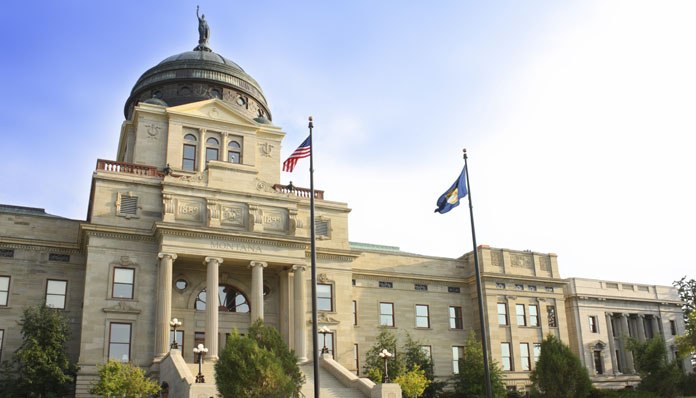Volume 20, Number 2 — January 14, 2012
Your Help is Needed this Session
 This session’s anti-environment bills are largely a rehash of bad ideas that were defeated or vetoed in the 2011 Legislative Session. Some bills seek to encourage coal development and weaken clean energy laws such as the State’s renewable energy standard. Others take aim at our constitutional rights. Many bills rising from the ashes are aimed at weakening local land use laws. Fortunately, some legislators do want to address climate change. Ending the oil and gas tax holiday and preventing oil and gas companies from wasting natural resources with unnecessary flaring are just some of the good ideas emerging this session.
This session’s anti-environment bills are largely a rehash of bad ideas that were defeated or vetoed in the 2011 Legislative Session. Some bills seek to encourage coal development and weaken clean energy laws such as the State’s renewable energy standard. Others take aim at our constitutional rights. Many bills rising from the ashes are aimed at weakening local land use laws. Fortunately, some legislators do want to address climate change. Ending the oil and gas tax holiday and preventing oil and gas companies from wasting natural resources with unnecessary flaring are just some of the good ideas emerging this session.
If you want to be a “citizen lobbyist,” attend one of our lobby days (see information below) and help us push good ideas forward or defeat one or two of the many anti-environment bills.
Some of the most effective things you can do are:
- Contact the members of the committee to which the bill has been referred with your input. If one of your local legislators is on the committee, be sure to let her/him know that you are a constituent. E-mail is the quickest way to reach multiple committee members; USPS mail may not even arrive before the hearing takes place.
- Read the bill online, so that your communication can address the specific provision(s) that you support or oppose. Legislators are particularly influenced by real-life experiences (as opposed to broad generalizations); personalize your input.
- Consider coming to the Capitol to testify in person if a particular bill really matters to you or will impact your life significantly. MEIC’s full-time lobbyists can help identify and locate the legislators who may be most influenced by what you have to say.
- Attend a Citizen Lobby Day and help us in defending Montana’s environment during the 2013 Legislative Session. We will help guide you through the steps you need to talk effectively to your legislators about issues that matter to you. Please sign up for one or all of our Citizen Lobby Days and let us help you protect the environment. The dates are February 13th, March 8th and April 9th.
Renewable Energy Standard

SB 31 (Sen. Debbie Barrett, R-Dillon)
Status: As amended, passed the Senate on a 32-18 vote.
This bill originally would have allowed all the electricity generated at all hydro-power facilities, including existing ones, to be considered as renewable energy for the purpose of complying with the State’s Renewable Energy Standard (RES). The bill was amended on the Senate floor to limit its applicability to new hydro-power facilities, regardless of size. The current RES allows new dams under 10 megawatts in size, and new irrigation drop facilities under 15 megawatts in size, to count as eligible renewable resources. By allowing dams of any size to be included, this bill would limit economic opportunities for new renewable energy development to western Montana. The purpose of enacting the RES was to diversify Montana’s energy resources and spread the economic benefits of renewable energy development across the state.
 SB 106 (Sen. Greg Jergeson, D-Chinook)
SB 106 (Sen. Greg Jergeson, D-Chinook)
Status: The Senate Energy and Telecommunications Committee held a hearing on January 29th.
This bill would allow certain energy storage technologies to be included as an eligible renewable resource under the RES. Batteries, flywheels, and certain pumped hydro projects can be used to provide back-up service to intermittent renewable energy technologies such as wind, and can help to reduce peak energy demand. SB 106 only allows the portion of the energy that is stored and renewable to be counted towards the renewable energy standard.
Climate Change and Coal
 SB 138 (Sen. Art Wittich, R-Bozeman)
SB 138 (Sen. Art Wittich, R-Bozeman)
Status: Passed the Senate Taxation Committee on a party-line vote.
A few proposals have emerged to encourage or give tax breaks to coal development. As is often the case, MEIC was the only opponent of SB 138. This bill would lower the property tax rate for new fossil fuel power plants from as much as 12% down to 3% in general, and to 1.5% for the first 20 years. This dramatic reduction would encourage more development of the high carbon fuels that are responsible for climate change.
 HJ 9 (Rep. Jonathan McNiven, R-Huntley)
HJ 9 (Rep. Jonathan McNiven, R-Huntley)
Status: The House Federal Relations, Energy, and Telecommunications Committee held a hearing on February 4th.
This resolution would require notice to be given to Montana’s Congressional delegation and other federal decision makers that Montana supports coal development, the building of coal export terminals, and the export of Montana coal to Asian markets. This nonsensical idea ignores the serious impacts from developing coal mines. It glosses over the negative impacts of increased rail traffic. It omits the fact that low natural gas prices are rapidly displacing coal across the country. Most importantly it fails to mention that coal-induced climate change.
Land Use
 SB 23 (Sen. Matthew Rosendale, R-Glendive)
SB 23 (Sen. Matthew Rosendale, R-Glendive)
Status: Passed 2nd reading in the Senate by a 28-22 vote.
This bill would revise interim zoning rules. Interim zoning is a regulatory tool that maintains the status quo when there is a potentially detrimental land use proposal. This bill would not only make interim zoning more difficult but would make it impossible to require the mitigation measures developed during interim zoning when adopting final zoning.
SB 24 (Sen. Matthew Rosendale, R-Glendive)
Status: Passed the Senate on a 33-17 vote.
This bill would give rights to gravel mine developers at the expense of existing residential homeowners. Gravel mine developers could submit a mine permit application during what is usually a very long zoning process and pre-empt possible residential zoning.
 SB 105 (Sen. Taylor Brown, R-Huntley)
SB 105 (Sen. Taylor Brown, R-Huntley)
Status: Passed the Senate on a 27-23 vote.
This bill would prevent local governments from adopting interim zoning to mitigate a proposal’s impacts on property owners if the State has received an application for a project in the area, even if that project is never approved or built. The problem is that the State usually has no authority to protect community interests when permitting facilities such as gravel mines and coal-fired power plants.
 SB 147 (Sen. Edward Buttrey, R-Great Falls)
SB 147 (Sen. Edward Buttrey, R-Great Falls)
Status: Passed the Senate on a 30-20 vote.
This bill would undermine one of the original purposes of the subdivision law by limiting a local government’s ability to protect agricultural land in subdivision review. Instead of allowing county governments to consider a proposed subdivision’s potential impact on “agriculture,” it would restrict consideration to “adjacent agricultural operations.”
Oil and Gas
 LC 1358 (Sen. Christine Kaufmann, D-Helena)
LC 1358 (Sen. Christine Kaufmann, D-Helena)
Status: Currently being drafted and has not yet been introduced.
This bill would would repeal the oil and gas production tax “holiday.” This tax break was enacted in the late 1990s to encourage oil and gas development in Montana. It exempts oil and gas wells from virtually all production taxes during the first 12-18 months. With the use of horizontal drilling and hydraulic fracturing, Montana has seen a rapid increase in oil and gas development. This boom has come at great cost to public infrastructure and emergency services in impacted communities, especially in eastern Montana. LC 1358 would designate the new revenue for impacted schools and encourage the development of clean and renewable energy.
 LC 1710 (Rep. Doug Coffin, D-Missoula)
LC 1710 (Rep. Doug Coffin, D-Missoula)
Status: Also being drafted and has not yet been introduced.
This bill would would put into law a maximum limit on the amount of natural gas that could be vented and flared from an oil well tax-free. Emissions above the limit would be taxed. Oil wells, particularly in the Bakken formation area of eastern Montana, frequently burn off relatively cheap natural gas, instead of installing the necessary infrastructure to capture the gas and prevent greenhouse gas emissions.

